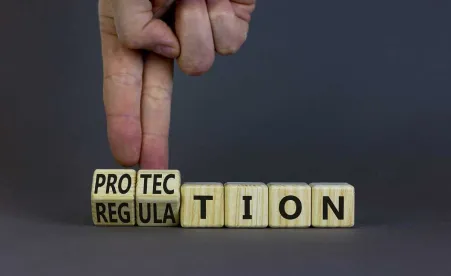Antitrust and Competition
Global Dawn Raids Signal Increased Antitrust Enforcement to Uncover Potential Cartel Behavior in the Fragrance Industry
On 7 March 2023, the European Commission (Commission), the United Kingdom’s Competition and Markets Authority, and the Swiss Competition Commission conducted unannounced inspections (Dawn Raids) in several member states of the European Union, the United Kingdom, and Switzerland. The Dawn Raids were conducted in consultation with the Antitrust Division of the U.S. Department of Justice and show the close cross-jurisdictional cooperation among competition authorities with regard to international cartel enforcement. The Commission also sent out formal requests for information to several companies active in the fragrance sector.
The Dawn Raids were carried out at the premises of four large companies active in the production of fragrances, as well as at a trade association in the fragrance industry. The competition authorities are concerned that the investigated companies and the trade association may have violated antitrust rules that prohibit cartels and restrictive business practices in relation to the supply of fragrances and fragrance ingredients. There are suspicions that these companies may have coordinated their pricing policy, prohibited their competitors from supplying certain customers, and limited the production of certain fragrances. Fragrances are used in the manufacture of many products, including cosmetics, personal care, and household products.
At this stage, no assumptions can be made on the outcome of the investigations. The Dawn Raids, in and of themselves, are only a first investigative step based on suspicion of anticompetitive practices and do not prejudice the outcome of the investigations. Should the competition authorities come to the view that competition law has been infringed, the investigated companies and the association involved may face fines of up to 10% of their worldwide group turnover in the last financial year. Such fines can be reduced or even waived completely if one of the companies or the association investigated provide substantive information on the collusive practice (in exchange for full or partial immunity), i.e., submits a so-called leniency application. At this stage, it is not clear whether such a leniency application has already been submitted by one of the companies - and might have been the reason for the dawn raids in the first place. All searched companies confirmed that they intend to cooperate fully with the competition authorities.
The Dawn Raids follow a number of other recently unannounced inspections in other industries - most recently the water infrastructure, online food delivery, and fashion sectors. They send a stark reminder to companies on the importance of being prepared to efficiently manage unannounced inspections that may result in the imposition of hefty fines for procedural breaches (e.g., breach of seal, destroy or refuse to supply documents, obstruction). They also highlight the critical role of antitrust compliance programs to prevent and mitigate antitrust risk.
Digital Affairs
Legislative Negotiations on the European Chips Act Are Moving to the Final Stage
Last month members of the European Parliament (MEPs) endorsed a report adopted by the Committee on Industry, Research and Energy on the proposal for a regulation establishing a framework of measures for strengthening Europe’s semiconductor ecosystem (the Chips Act).
The European Parliament’s position focuses on the development of next-generation semiconductors and quantum chips and on supporting research, design, and production by attracting investment and building up production capacity within the EU.
The European Parliament reinforces in particular the Chips Act’s provisions concerning the development of quantum chips in the European Union and also clarifies the provisions concerning the establishment of a European Chips Infrastructure Consortium, a legal entity tasked with implementing actions funded under the Chips for Europe Initiative which aims to support technological capacity building and related research and innovation. Furthermore, the European Parliament mandates the setting up of a European network of competence. MEPs also proposed to broaden the scope of the definition of “first-of-a-kind facilities”, which are for example eligible to fast-track permit granting and prioritized access to pilot lines set up under the proposed Chips for Europe Initiative, to include industrial facilities manufacturing materials or equipment used for chip manufacturing and processing raw materials.
Finally, with a view to crisis prevention with regard to supply shortages, the European Parliament introduced a new article related to the continuous mapping of the chip value chain. The mapping will be carried out by the Commission and will be shared with the EU member states.
Following the positive vote on the Chips Act, the European Parliament is now ready to enter into interinstitutional negotiations on the final version of the text with the Council of the European Union (Council), which adopted its position in December 2022.
Economic and Financial Affairs
European Parliament’s ECON Committee Adopts Reports on Market Infrastructure Rules
On 1 March 2023, the Committee on Economic and Monetary Affairs (ECON Committee) adopted the reports for the Markets in Financial Instruments Regulation and the amendments to the Markets in Financial Instruments Directive, by 45–5 votes, with nine abstentions, and by 52–6 votes, with one abstention, respectively. The same day, ECON Committee MEPs voted to enter interinstitutional negotiations on both legal acts.
The adopted reports will thus represent the European Parliament’s position during trilogue negotiations with the Council on both drafts.
Some of the most discussed topics on which the ECON Committee proposed and adopted amendments include:
Consolidated Tape
ECON Committee MEPs supported an EU-wide consolidated tape, i.e. a recording of all trading activities. Trading venues will have to provide as close as technically possible to real time pre- and post-trade information (depending on the asset class). MEPs also suggest that retail investors, academics, and civil society organizations using the data for research should have free-of-charge access to the consolidated tape.
Single Volume Cap
ECON Committee MEPs suggest establishing a single volume cap limiting the amount of dark trading in an equity instrument in the European Union to 7% of the total trading in such instrument.
Deferral Times in Some Trading Instruments
ECON Committee MEPs modify the deferral times applicable to bonds, structured products, emission allowances, and derivatives in order to improve transparency. MEPs suggest implementing an EU harmonized regime categorizing the deferrals based on the liquidity and size of transactions, to allow investors improved and faster access to transaction data and to compare prices of different financial instruments.
Payment for Order Flows
MEPs prohibit the possibility of payment for order flow, i.e., receiving payments to forward client orders for execution, with the aim to improve investor protection and enhance an orderly trading.
EU Co-Legislators Push for Prevention of Greenwashing
On 28 February 2023, the EU co-legislators (European Parliament, Council and Commission) reached a provisional agreement (not publicly available yet) on the European green bond standard (EU GBS) proposed by the Commission on 6 July 2021. The Commission first introduced the concept of an EU GBS in 2018, when it was included as an action from the 2018 Commission’s action plan on financing sustainable growth. The Commission later reviewed the concept and adopted the proposed regulation in 2021. The EU GBS is a voluntary standard aiming at preventing greenwashing and ensuring that bonds labeled as “green” are in fact aligned with the European Union’s environmental climate and objectives.
The EU GBS will be available to any issuer of green bonds and will allow them to use the term “European green bond” or “EU GB.," if the following key requirements are fulfilled:
Taxonomy-Alignment
All funds raised by EU GBS should be allocated fully to projects that are aligned with the EU taxonomy, provided the regulation covers the sector involved. Under the provisional agreement, for economic activities that comply with the taxonomy requirements but for which no criteria under the EU taxonomy have been yet established, the requirement will be that 15% of the proceeds from a green bond be invested in economic activities complying with the EU taxonomy.
Transparency
The EU GBS promotes and enacts full transparency on how the bond proceeds are allocated through detailed reporting requirements. Companies will be obliged to show how those investments impact the transition plans of the respective company as a whole. Companies issuing bonds which do not (yet) fulfill the EU GBS requirements can, via voluntary disclosure templates, voluntarily submit to the transparency requirements, allowing them to gain heightened trust from investors.
External Review
The EU GBS also puts forwards a registration system and supervisory framework for external (i.e., independent) reviews of European green bonds. In this vein, the EU GBS states that any current or potential conflicts of interest must be properly identified, eliminated, or managed, and they must be disclosed transparently.
Supervision
National competent authorities will be in charge of supervising that issuers comply with their obligations under the EU GBS.
The European Parliament and the Council now have to formally approve the agreed text before its publication in the Official Journal of the European Union. After its publication, the text will start being applicable one year after its entry into force.
Energy
Commission Sets Out Rules for Definition of Renewable Hydrogen
On 13 February 2023, the Commission adopted two delegated acts required under the Renewable Energy Directive (the RED) setting out detailed rules on what constitutes renewable hydrogen in the European Union. Their main objective is to complement the EU regulatory framework for hydrogen in light of REPowerEU’s objectives to reach 10 million tons of domestic renewable hydrogen production and 10 million tons of imported renewable hydrogen by 2030.
The rules proposed under the delegated acts set out specific criteria for hydrogen producers to ensure that the electricity used is renewable, both in case where the production installation is directly connected to a renewable-power installation and where the electricity is taken from the grid.
The first delegated act defines when hydrogen, hydrogen-based fuels, or other energy carriers can be considered as renewable liquid and gaseous fuels of nonbiological origin (RFNBO). This act clarifies the principle of “additionality” for hydrogen set out in the RED. Under the new rules, electrolysers to produce hydrogen will have to be connected to newly created renewable electricity production, with the aim to ensure that the generation of renewable hydrogen boosts an increase in the overall volume of renewable energy available to the grid beyond the existing volumes. Hydrogen production will thus be supporting decarbonization and complementing electrification efforts, while avoiding pressure on power generation.
The second delegated act sets the methodology to calculate greenhouse gas (GHG) emissions savings from RFNBO and recycled carbon fuels. The methodology takes into account GHG emissions throughout the full life cycle of the fuels, including upstream emissions, emissions associated with taking electricity from the grid and from processing, and those associated with transporting the fuels to the end consumer. It also clarifies how to calculate the GHG emissions of renewable hydrogen or its derivatives in case it is coproduced in a facility that produces fossil-based fuels.
The requirements for the production of renewable hydrogen will apply to both domestic producers and third-country producers that want to import renewable hydrogen into the European Union to count towards the EU renewables targets. A certification scheme relying on corresponding so-called “voluntary schemes” will be introduced to ensure that third-country producers adhere to the same criteria.
In terms of next steps, the delegated acts will be submitted to the European Parliament and the Council for approval. Both institutions will have two months to either accept or object (not amend) to the Commission’s proposals. The scrutiny period can be extended by an additional two months.
Council and European Parliament Reach Provisional Agreement on Proposed Reform of Energy Efficiency Directive
On 10 March 2023, the Council and the European Parliament reached a provisional agreement on the Commission’s proposal to reform the EU Energy Efficiency Directive.
The Commission proposed to reform the existing Energy Efficiency Directive in 2021 as part of the “Fit for 55 Package,” a set of proposals intended to deliver on the European Union’s emissions reduction targets for 2030 and pave the way to the European Union’s climate neutrality by 2050. With the REPowerEU plan, the Commission proposed further changes to the Energy Efficiency Directive on 18 May 2022, which were also taken into account by the Council and the European Parliament.
Following months of negotiations between the Council and the European Parliament, they now settled on a compromise text for the revision of the Energy Efficiency Directive. The text requires a reduction of primary energy consumption (energy consumption, including energy used for production and supply of energy) and final energy consumption (energy consumed by end-users only) at EU level by 11.7% compared to consumption forecasts for 2030 (as made in 2020. EU) member states will, however, benefit from a degree of flexibility insofar as national contributions to reaching the target are indicative only. A so-called gap-filling mechanism will ensure that the contributions of individual EU member states are raised if the overall sum of contributions does not add up to 11.7%.
Under the provisional agreement, each EU member state will, between 2024 and 2030, need to meet a new average annual energy savings target of 1.49% of final energy consumption and reach 1.9% by 31 December 2030. Measures at the national, regional, and local level shall contribute to meeting this target and may include energy savings resulting from policy measures under the current and the revised Energy Performance of Buildings Directive, measures under the current and new EU emissions trading system, and emergency energy measures.
The public sector (excluding the armed forces and public transport) in each EU member state will also need to reduce energy consumption by 1.9%. EU member states must further ensure that at least 3% of buildings owned by public bodies are renovated into nearly zero-energy buildings or zero-emission buildings each year.
The text agreed to by the negotiators must be formally approved by the Council and the European Parliament before it is published in the Official Journal of the European Union and can enter into force.
REPowerEU: Additional Energy Measures for National Recovery Plans
New rules concerning REPowerEU measures in national recovery plans entered into force on 1 March 2023 following the European Parliament’s adoption of a legislative resolution on the proposal for a regulation for REPowerEU chapters in national recovery and resilience plans.
The new reforms and investments aim to improve energy infrastructure and facilities to meet immediate security of supply needs for gas, including liquefied natural gas, and to that end, diversify supply; increase the energy efficiency of buildings and critical energy infrastructure; incentivize reduction of energy demand; remove obstacles in energy transmission and distribution, supporting electricity storage and accelerating the integration of renewable energy sources; and support zero-emission transport and its infrastructure, including railways.
MEPs approved actions to include RePowerEU measures in national plans in order to become more independent from Russian fossil fuels and increase the transition towards green technologies. The Council adopted the act on 21 February, with the act published in the Official Journal of the European Union on 28 February.
Under the new measures, EU member states seeking additional funding through an amended national recovery and resilience plan will be required to include steps toward achieving the REPowerEU goals, e.g., saving energy, producing further clean energy, and diversifying energy supplies. The recovery and resilience facility, a component of the European Union’s recovery instrument, which supports the implementation of the national recovery and resilience plans, is in place until 31 August 2026.
Within the regulation, €20 billion in grants have been approved for new reforms and investments. To finance the grants, MEPs secured €8 billion from an earlier auctioning of national emission allowances under the EU emissions trading system and €12 billion from the European Union’s innovation fund.
The objectives are supported by the Commission’s recently proposed Net-Zero Industry Act and the Critical Raw Materials Act, which are currently being reviewed by the European Parliament and the Council.
Dr. Michael Hofmann, LL.M, Stefano Prinzivalli Castelli, Petr Bartoš, Vittoriana Todisco, Joanna Kulewska, Matilde Manzi, and Mélanie Bruneau also contributed to this article.







 />i
/>i

